
As the University of Florida celebrates an ambitious landmark achievement of surpassing $1 billion in research expenditures, the Herbert Wertheim College of Engineering would like to share how our eminent faculty and researchers — working side-by-side with our students — have helped contribute more than $131 million to that tally over the past year. From Monday, October 10 through Friday, October 14, 2022, we will be showcasing the varied ways the College is fulfilling its mission to serve the State of Florida, the nation and the world through visionary technological breakthroughs and driving innovative advancement in every conceivable sector of society — from the depths of the sea and space to the mysterious recesses of the human brain. You will read how our engineers are collaborating with government, defense, medicine, corporations and high-tech partners to solve some of the greatest challenges confronting us today. We invite you to check in daily to see how the New Engineer at UF is impacting our world for the better.
Day Five
CISE researchers create reliable predictive AI models for diagnosis of neurodegenerative diseases, and an interdisciplinary UF partnership provides a rapid test to determine “Is it COVID or the flu?”
Researchers Seek to Build Confidence into AI for Healthcare Under NSF Grant
A team of researchers at the University of Florida will explore ways to increase trustworthiness and interpretability of artificial machine learning in healthcare under a new $1.2 million grant from the National Science Foundation. The team will also investigate ways to use AI to diagnose neurodegenerative diseases earlier.

My T. Thai, Ph.D., a professor in the Department of Computer & Information Science & Engineering, and co-principal investigator Ruogu Fang, Ph.D., an assistant professor in the J. Crayton Pruitt Family Department of Biomedical Engineering
Clinicians May Now be Able to Tell COVID-19 from Seasonal Flu with Fast Turnaround Thanks to UF Research
Led by Z. Hugh Fan, Ph.D., professor at the Herbert Wertheim College of Engineering’s Department of Mechanical and Aerospace Engineering, and Dr. John Lednicky, research professor at the College of Public Health and Health Professions’ Department of Environmental and Global Health, an interdisciplinary team at the University of Florida has developed a game-changing diagnostic test for SARS-CoV-2 that is fast, reliable, low-cost and capable of differentiating between COVID-19 and influenza.
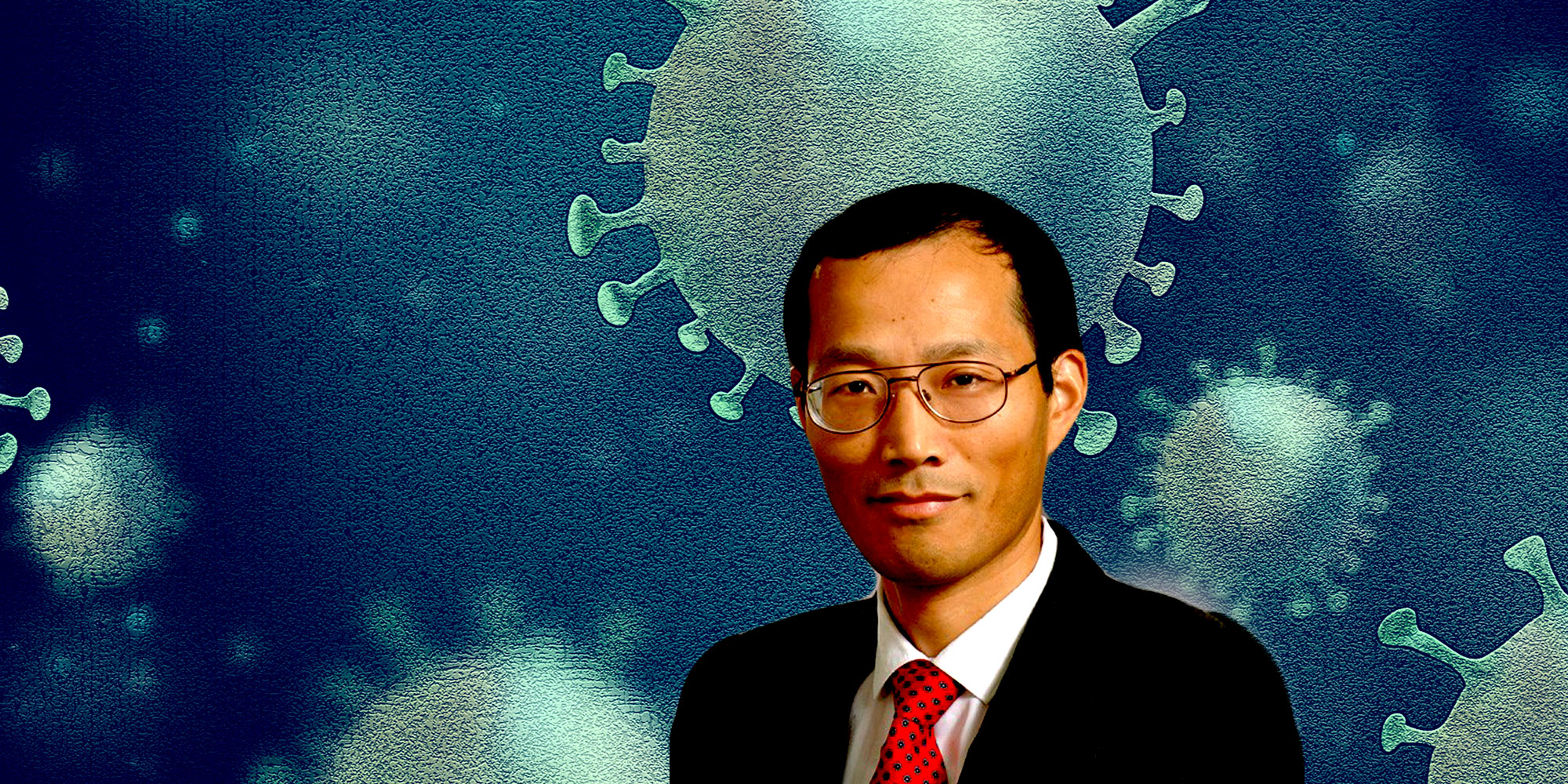
Z. Hugh Fan, Ph.D., professor at the Herbert Wertheim College of Engineering’s Department of Mechanical and Aerospace Engineering
Day Four
Two ECE faculty tackle malevolent microchip hacks by baking in a security brain, and ESSIE spearheads a strategy team to protect water quality against harmful algal blooms in a vulnerable Florida ecosystem.
The Art of the Design: UF Computer Engineers’ Baked-In ‘Security Brain’ Technology has Microchips Defending Themselves
ECE professors Sandip Ray, Ph.D. and Swarup Bhunia, Ph.D. have successfully capped a four-year chip design research project with the development of a revolutionized microchip security module, making hardware patchable.
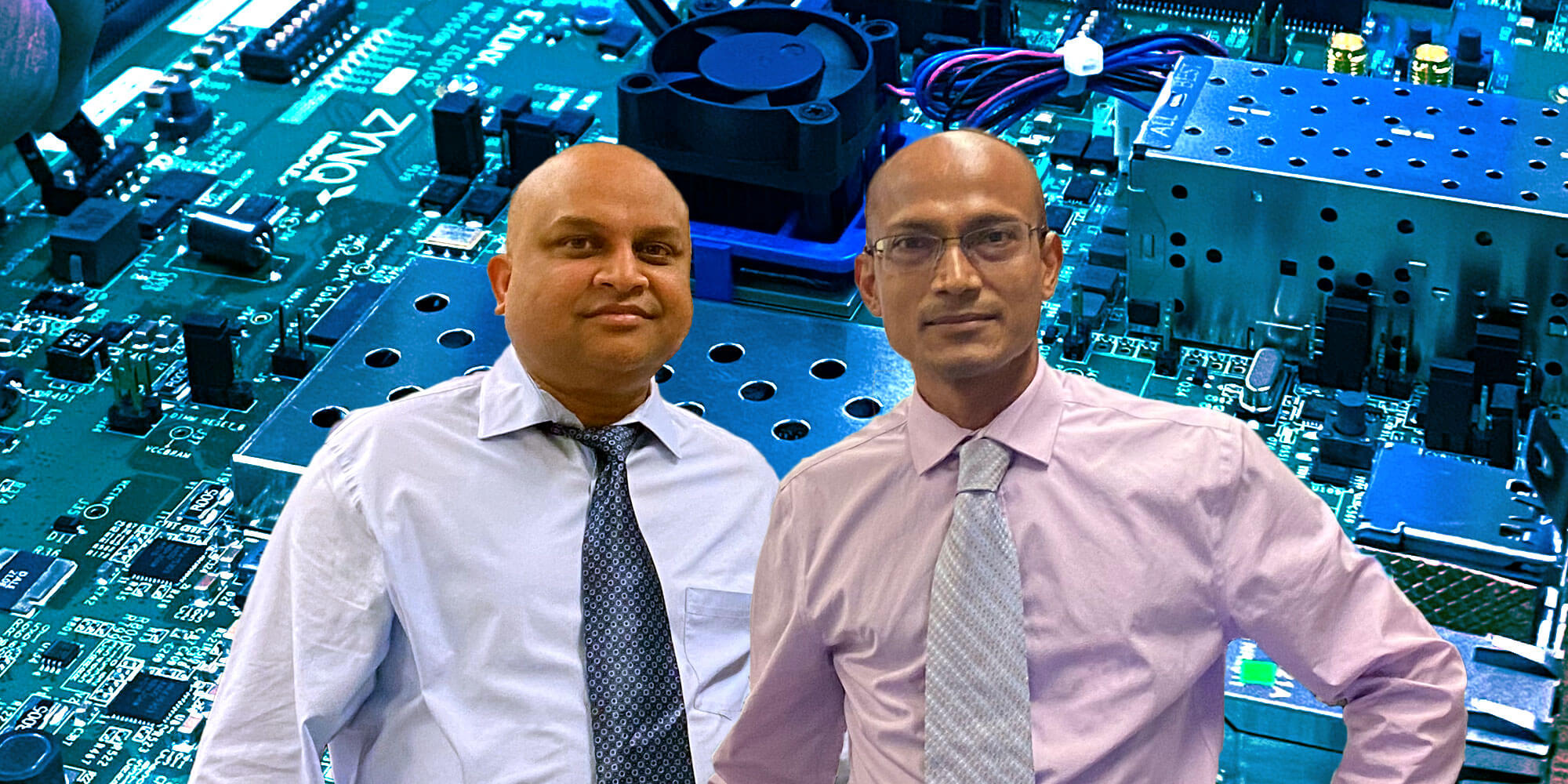
ECE professors Sandip Ray, Ph.D. and Swarup Bhunia, Ph.D.
UF Center for Coastal Solutions Awarded Multi-Institution Grant to Study Harmful Algal Blooms
University of Florida Center for Coastal Solutions (CCS) Associate Director David Kaplan, Ph.D., and a team of CCS-affiliated scientists and engineers from UF, the University of South Florida, North Carolina State University and the Sanibel-Captiva Conservation Foundation have received $2.3 million from the U.S. Army Corps of Engineers to study how water and nutrients flowing from Lake Okeechobee and the Caloosahatchee River watershed interact with tides, currents, and waves at the coast to affect coastal water quality.
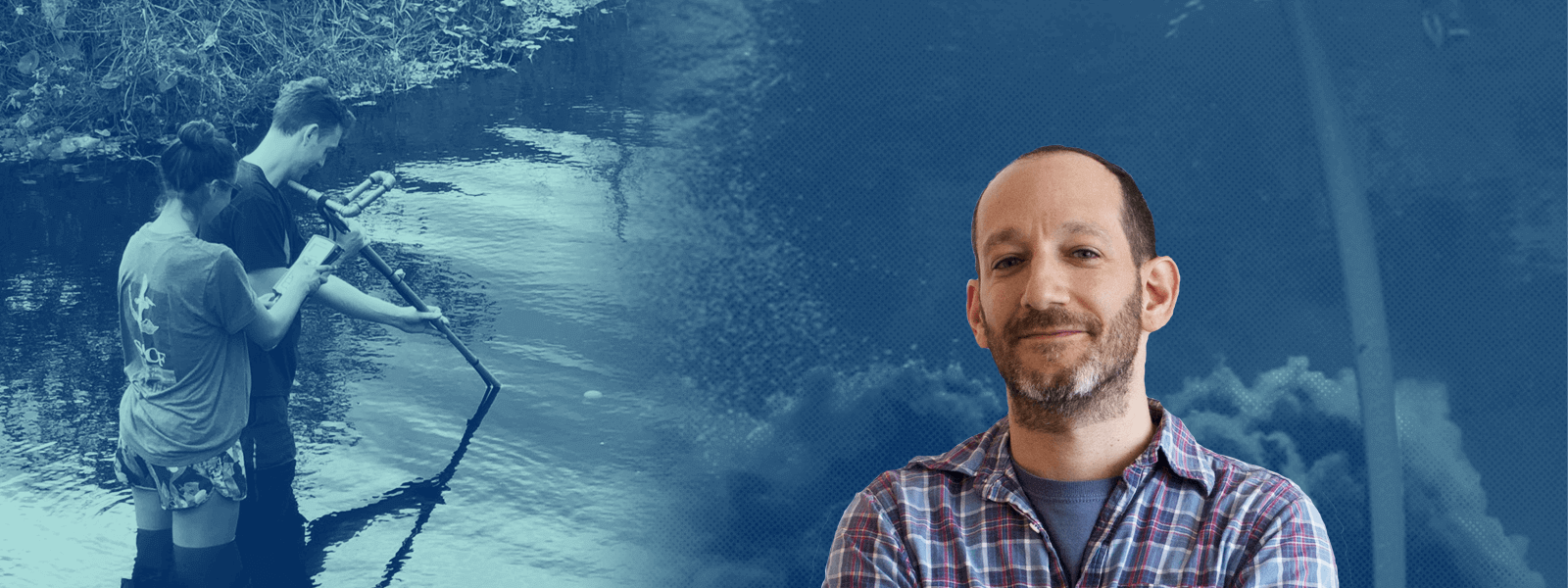
Center for Coastal Solutions (CCS) Associate Director David Kaplan, Ph.D.
Day Three
UF ESSIE researchers help shipping interests fulfill the demand for essential ROV operators by creating a sensory training upgrade, and UF CISE engineers leverage AI to enhance the human-tech interface to build assistive devices for use in hazardous environments.
Collaborative UF Research Team Receives NSF Grant to Reimagine ROV Performance for Emerging Workforce
The NSF has awarded $1.4 million to the University of Florida for a collaborative project to optimize operation of undersea robots (ROVs) for offshore industries and workers. Led by Eric Jing Du, Ph.D., a civil associate professor within the Engineering School of Sustainable Infrastructure and Environment (ESSIE), the project leverages the combined research of an interdisciplinary team within the University of Florida.
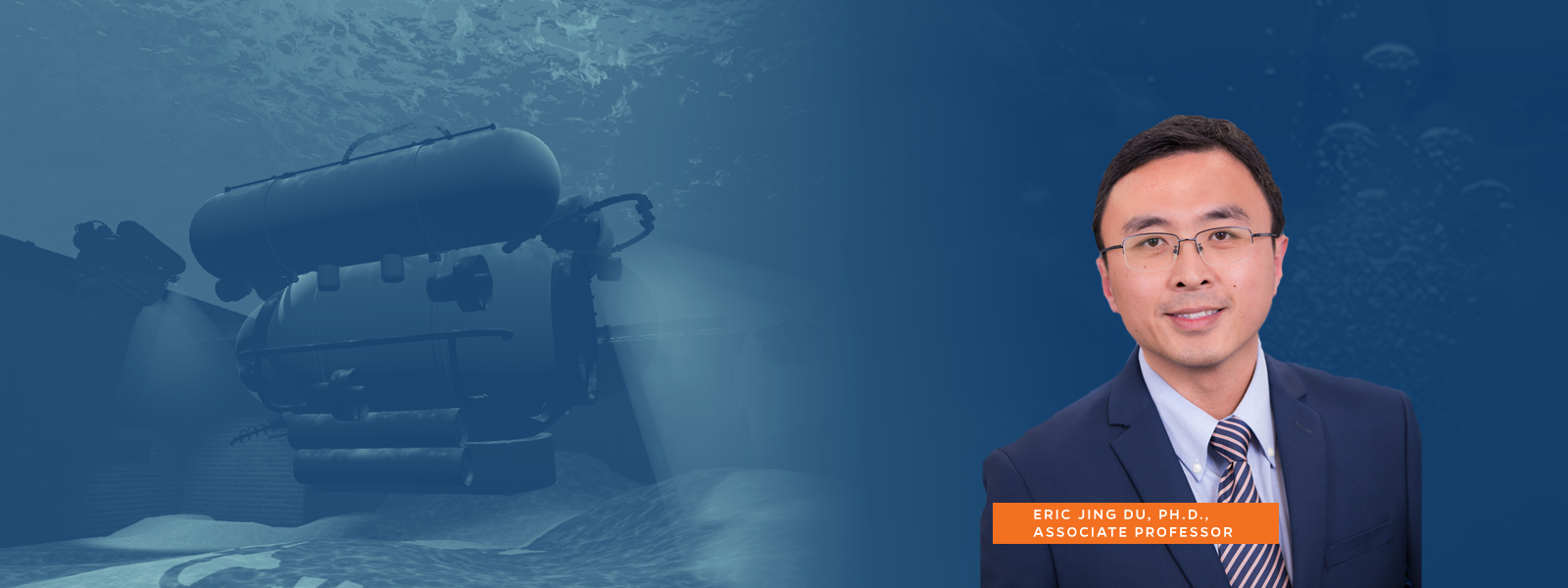
Eric Jing Du, Ph.D., a civil associate professor within the Engineering School of Sustainable Infrastructure and Environment (ESSIE)
UF Researchers to Augment Human Cognition to Aid in Extreme Work Environments
Using a new $2.8 million grant from the Defense Advanced Research Projects Agency (DARPA), researchers in the University of Florida Department of Computer & Information Science & Engineering (CISE) will work to augment human cognition by providing task guidance through augmented reality (AR) headset technology in extreme environments, including high hazard and risky operations.

Jaime Ruiz, Ph.D., associate professor in the Department of Computer & Information Science & Engineering
Day Two
UF ECE provides high-tech companies with a powerful, AI-based toolkit to block corrupted microchip design, and UF’s applied engineering research program scores major kudos and another large investment from the military/intelligence community for top-shelf top-secret infrastructure implementation.
Confounding Pirates and Trojan Horses: AI Gatekeepers at UF Provide Innovative Tool for Industries Looking to Shut Down Bad Actors
Damon Woodard, Ph.D., director of the Florida Institute for National Security and associate professor in the Department of Electrical and Computer Engineering, is leading a $1.2M research effort including Domenic Forte, Ph.D. and Ronald Wilson, Ph.D., to use artificial intelligence for the purpose of hardware security.
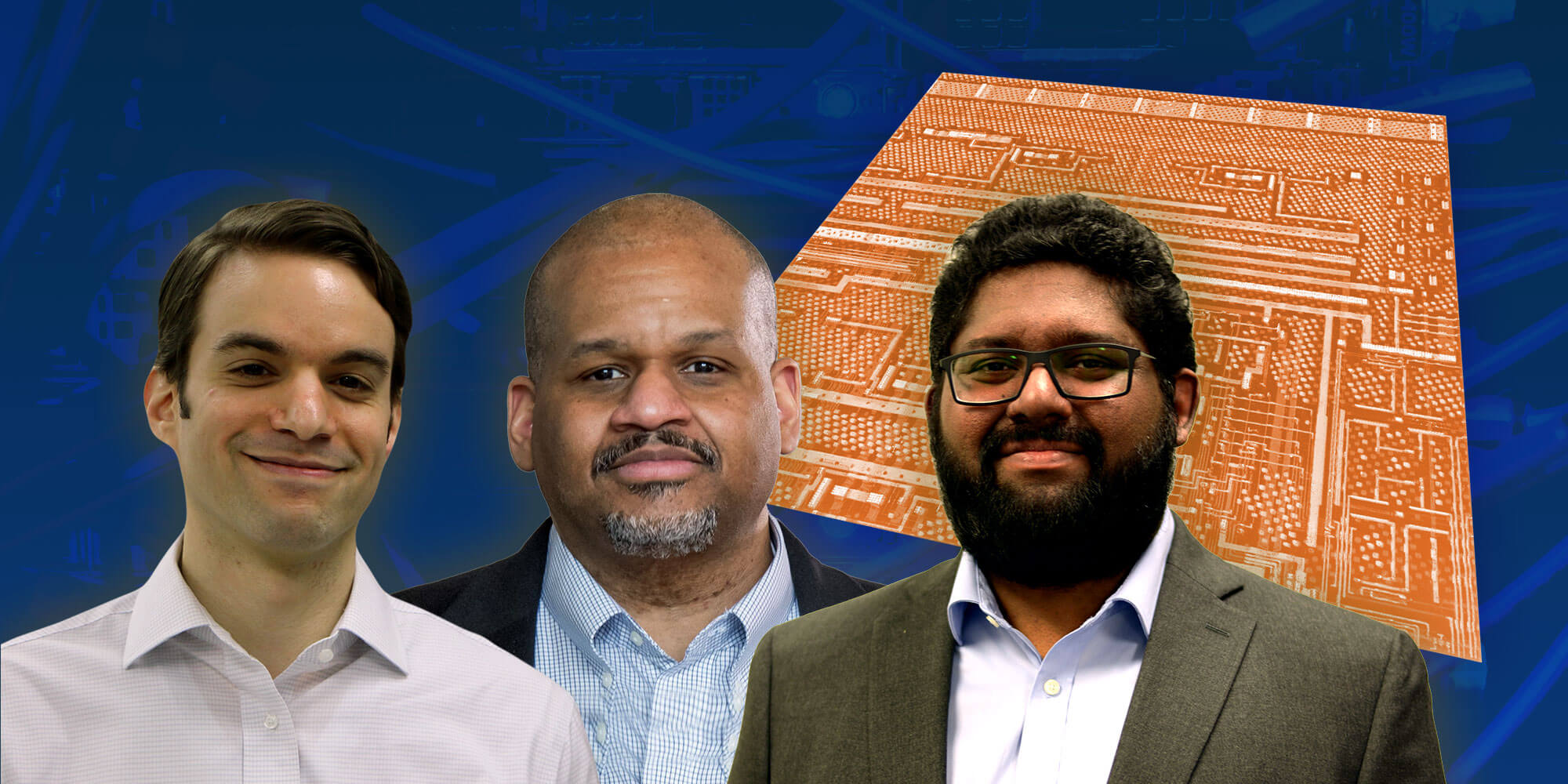
From left: Domenic Forte, Ph.D., Steven A. Yatauro Fellow and associate professor in the Department of Electrical and Computer Engineering; Damon Woodard, Ph.D., director of the Florida Institute for National Security and associate professor in the Department of Electrical and Computer Engineering; and Ronald Wilson, Ph.D., post-doctoral researcher in Electrical and Computer Engineering
UF Engineering Research Team Receives High Distinction for Delivering First of a Kind Department of Defense Solution
A team of UF researchers from the Florida Applied Research in Engineering (FLARE) program — the applied and classified research arm of the Herbert Wertheim College of Engineering — was presented the AFRL Corporate Award by the Air Force Research Laboratory’s (AFRL) Munitions Directorate.
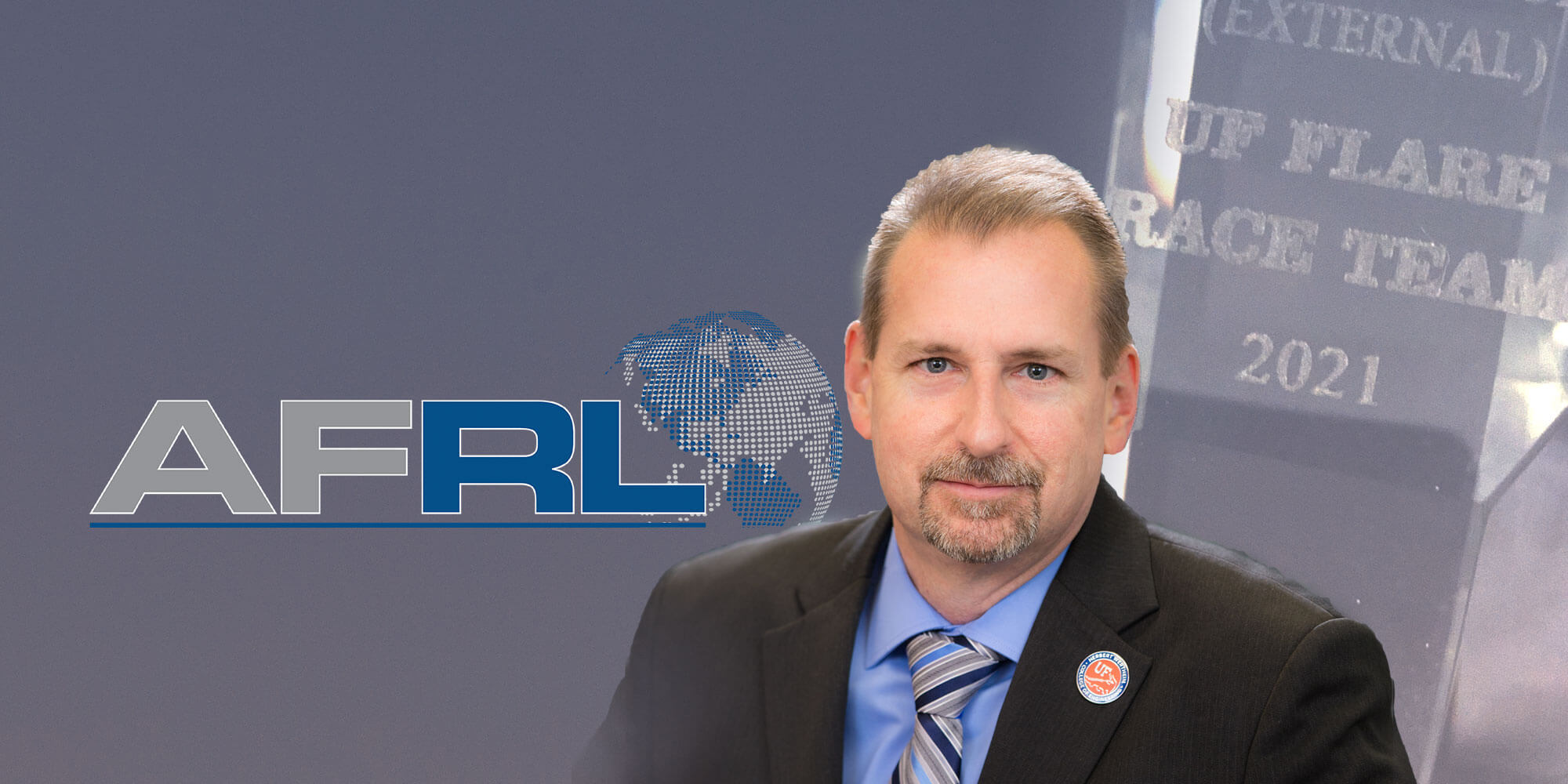
Richard Vigeant, FLARE Director and Regional Advancement and Capability Enhancement (RACE) Program Manager
Day One
UF ESSIE/CCS teams with the Army Corps of Engineers in a novel research network to heal and protect nature by going with the flow, and UF biomed engineers create an enzyme that could fight a common post-op complication.
The New Big Dig: UF Researchers Deliver Sustainable Solutions by Helping Government Engineers Cooperate with Nature
With $3 million in government funding through the U.S. Army Corps of Engineers, a team of UF researchers led by Christine Angelini, Ph.D., Director of the Center for Coastal Solutions, along with colleagues in ESSIE, is giving the Corps a sustainable framework for water resources engineering projects on Florida’s First Coast. The multidisciplinary team hopes to provide these ecosystems the protection necessary to withstand and even thrive under unpredictable climatic conditions and the burden of their many uses — commercial, residential, recreational and tourism.
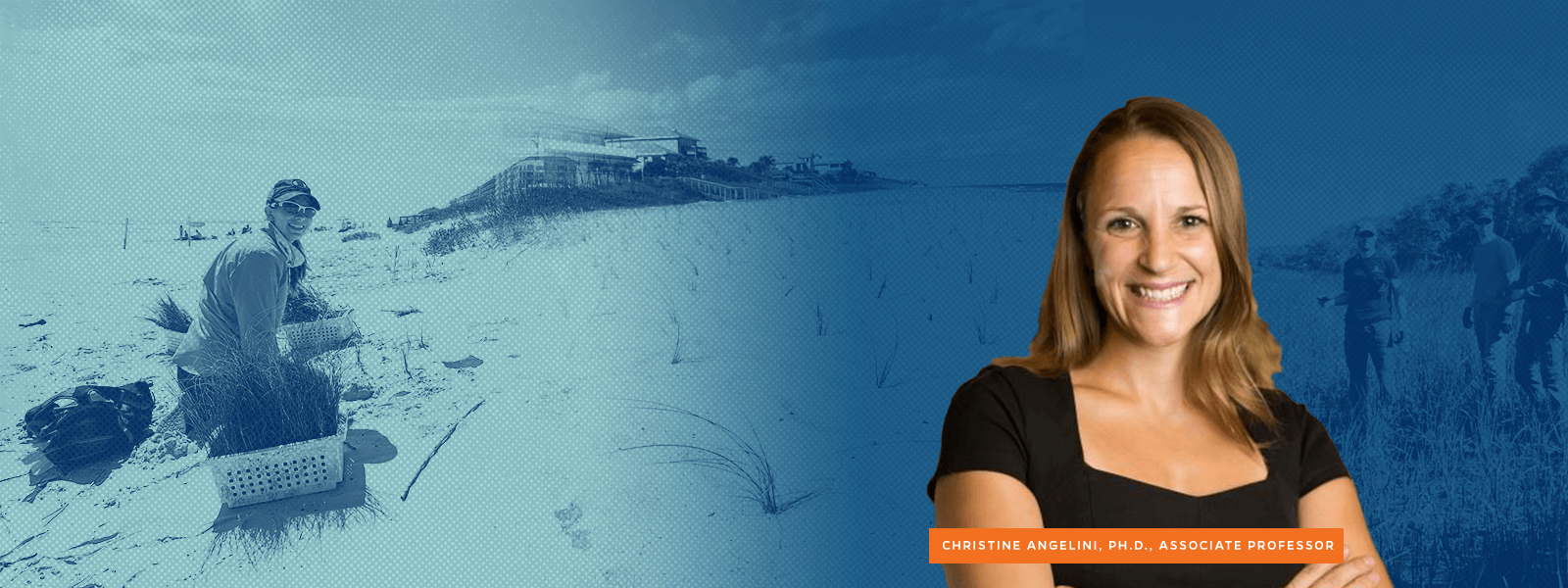
Christine Angelini, Ph.D., Director of the Center for Coastal Solutions
Innovative Injectable Enzyme Crafted by UF Biomed Engineers Shows Promise for Liver Transplants
Ben Keselowsky, Ph.D., professor, and Greg Hudalla, Ph.D., associate professor, both in the J. Crayton Pruitt Family Department of Biomedical Engineering, are collaborating with UF College of Medicine researchers on a three-year, $2.6M R01 project funded by the National Institute of Diabetes and Digestive and Kidney Diseases (NIDDK) that will further develop a novel enzyme-based therapeutic that has shown early promise in the treatment of liver ischemia-reperfusion injury (IRI).
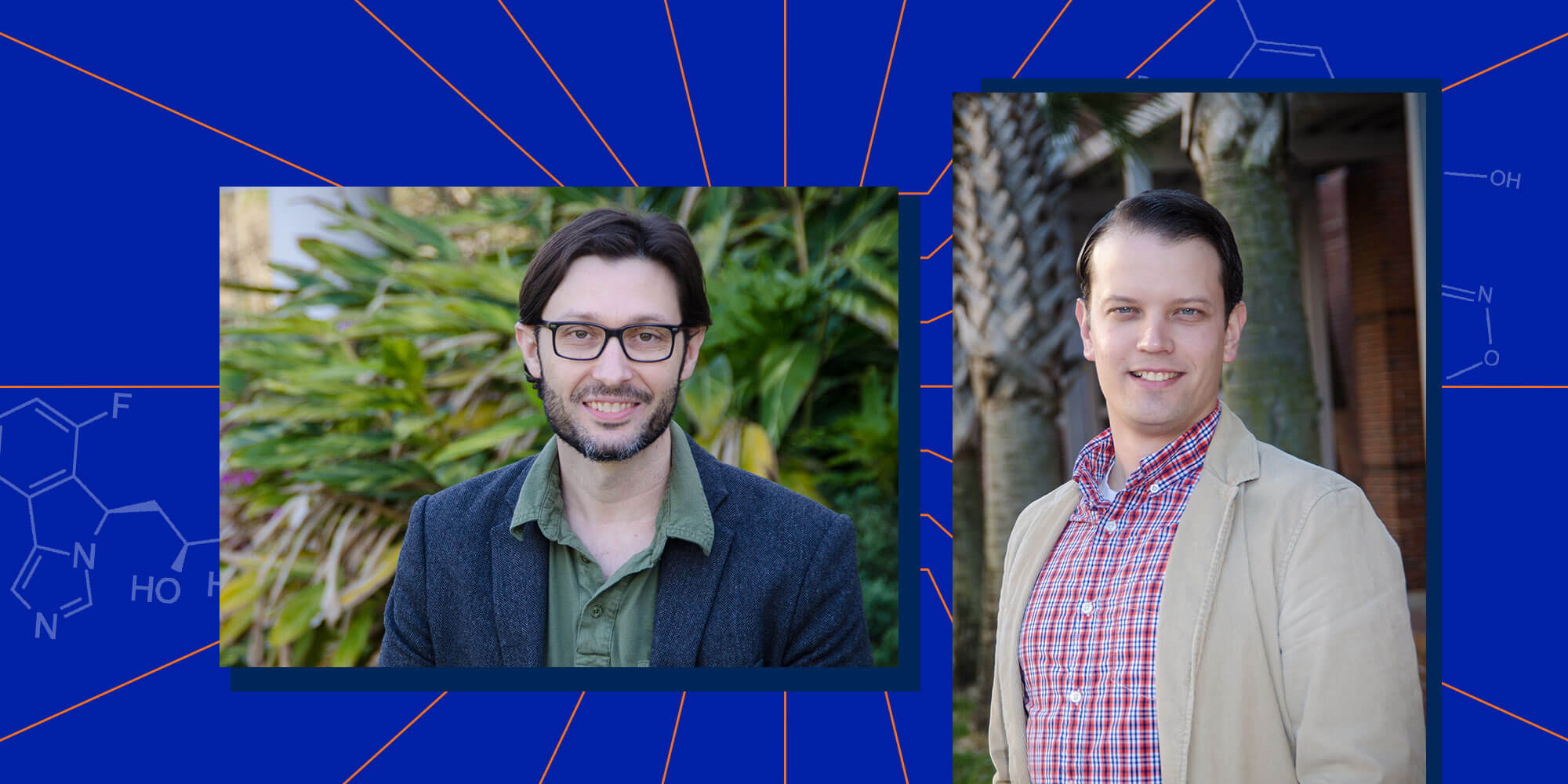
Ben Keselowsky, Ph.D., professor, and Greg Hudalla, Ph.D., associate professor, both in the J. Crayton Pruitt Family Department of Biomedical Engineering
